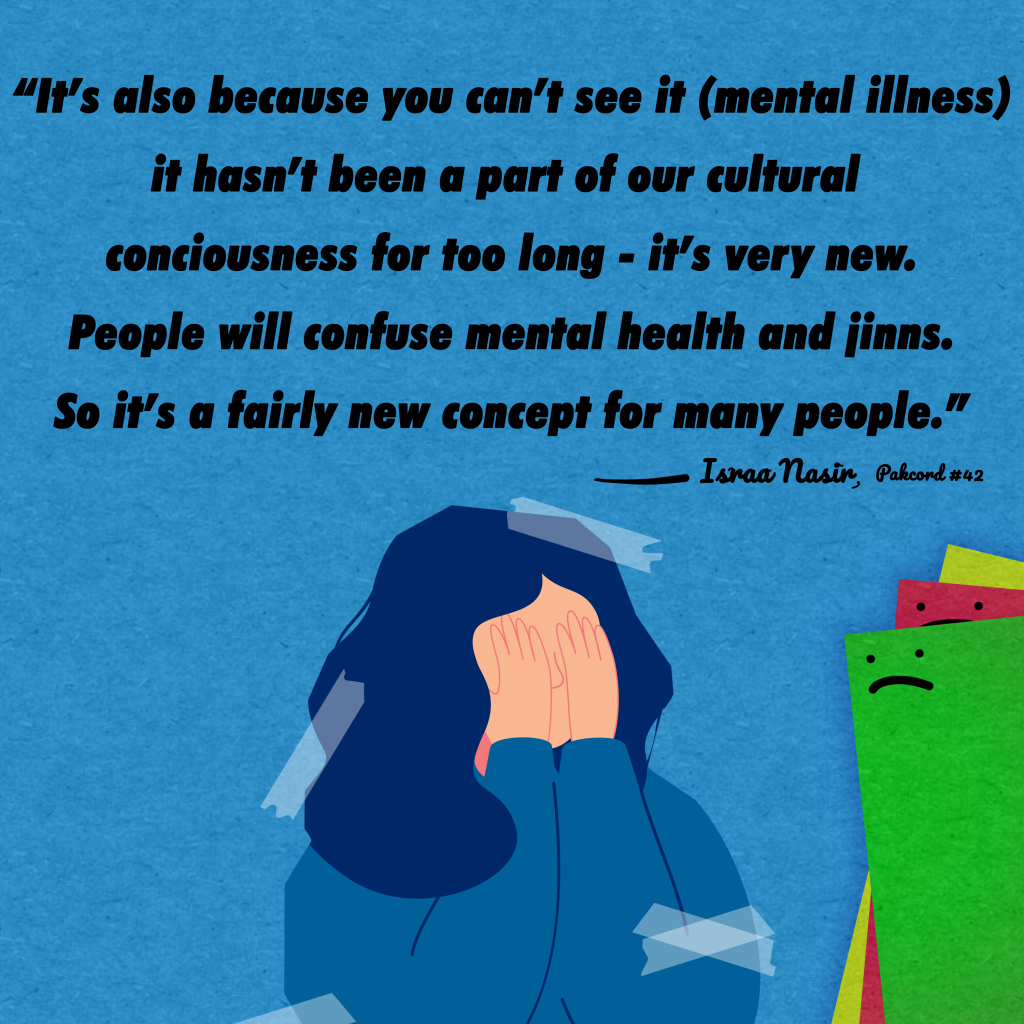

We Pakistanis do not discuss depression enough!
Today we shed more light on a highly important and underrated topic in the desi community: depression and mental illness. Our guest: 32 year old Israa Nasir from New York City. Israa has worked directly with patients in a mental health clinic, and now works within health tech to make an impact in the world of healthcare.
Many folks mistakenly translate “mental illness” to “pagal” in Urdu (hence the title of the episode). We often do not have appropriate words for various concepts, and that is one reason why the topic as a whole is gravely misunderstood in our community.

Why does the desi community dodge this discussion?
In Israa’s experience, there have been three common reasons for avoiding getting help for mental health:
- Hospitalization Stigma: “If I have depression, and need medication, I will end up in the hospital, or you will throw me in the crazy hospital.”
- Shaming through Religion: “You’re ungrateful to God – your imaan / faith is not strong enough hence you are depressed.”
- Secrecy: Brown culture is a very secretive culture – we are taught to maintain and hide ‘family secrets’ or even our own personal problems from others. This often prevents people from visiting counselors.
“It’s also because you can’t see it (mental illness) – it hasn’t been part of our cultural consciousness for too long – it’s very new. People still confuse mental illness and jinns. So it’s a fairly new concept for many people.
I think our depiction of it is also very intense and exaggerated. So if you watch dramas, like the most famous drama in recent times was Humsafar … the mother in law becomes mentally ill, but the depiction they show of her is this… this WILD woman, you know? And mental illness doesn’t look like that. Everyday mental illness looks like deep sadness, social anxiety, and feeling unworthy of love. Of course the psychotic disorders exist, but the depiction of mental health is always as if this person is copmletely out of their mind. So people are afraid, they don’t want to be associated with it, they don’t want to take medication that indicates they have it – they just want to hide it.”
– Israa Nasir
Health Professional
Timeline of Discussion:
- 0:49 – Introduction
- 7:43 – Israa discusses her mental health background
- 10:39 – Israa talks about the mental health clinic where she worked, and adds a desi context.
- 17:04 – Israa discusses some common barriers or reasons why there is reluctance in the desi community to seek help for mental illnesses.
- 19:46 – Does ‘imaan’ or faith have to do with mental illness? 24:42 – Common desi misconceptions of mental illness
- 33:50 – How does speaking to a counselor actually help with mental illness?
- 36:52 – Israa’s final note about depression & mental illness and what to do if you or your family member may be affected